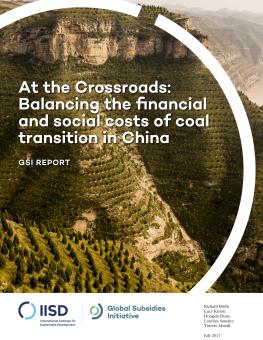
At the Crossroads: Balancing the financial and social costs of coal transition in China
The global decline of the coal industry has led to job losses and mine closures. As Shanxi in China considers how to create new employment in a coal dependent region we review international experience of the tranistion away from coal.
The boom and eventual bust of resource-dependent regions has played out across the world many times over the last 50 years.
As extractive industries decline demands are made for subsidies to protect the industry while policy-makers search for new industries to replace lost jobs and maintain economic development.
This report examines the current status of the coal transition in Shanxi and proposes recommendations for how reform can be managed to ensure that economic, social and environmental factors are built into the process. These recommendations draw on international experience, in particular, the experience summarized in case studies from South Wales in the United Kingdom, Appalachian Kentucky in the United States and Asturias in Spain.
Participating experts
You might also be interested in
Heatwaves to hit China once every 5 years as global extreme weather events multiply, study finds
Record-breaking heatwaves that have scorched North America, Europe and China are set to worsen in future unless the world stops burning fossil fuels, according to a study by the World Weather Attribution (WWA) academic initiative.
Are Countries Walking the Talk on Cutting Carbon?
In the race against climate change, increasing ambition over time is key. But revised commitments from parties to the Paris Agreement lack two critical components of ambitious climate action.
Doubling Back and Doubling Down: G20 scorecard on fossil fuel funding
This study tracks, for the first time, each G20 country's progress on ending support for fossil fuels—ranking their transparency, commitments, and financial support to oil, gas, and coal.
Health Co-Benefits from NDC Implementation in China
This report summarizes the policy efforts that the country is undertaking to meet its NDC targets and the related expected health co-benefits, based on recent scientific literature. It compares public budget allocations to health, climate change-related measures and subsidies to fossil fuels.